2022年3月上刊
Alcohol;月光族;Climate change; 韓國大選;Dr. Paul Farmer; America's interests; world changing; 俄烏衝突;Brain slows down after our 60s; 女性;罷免;個人敍事;學習愛;索尔仁尼琴和他的阴影;法律要明確;Grown-Up;愚蠢;現代精神病人;2015年嘅媒體環境; 遇羅克;Youth treatment programs……
經過再次改版,希望呢次嘅排版比之前幾期好睇啲,正文開始:
- Alcohol

又係Alcohol,最近呢方面嘅研究都幾多……可能因為隨着人均飲酒量嘅增加,科學家變得更加緊張,所以想做多啲研究嚟等人飲少啲
- 月光族

利率跑唔過通脹嘅情況下,「月光」係最大化收益嘅行為
不過穩陣起見都係留啲錢防身好啲
- Climate change
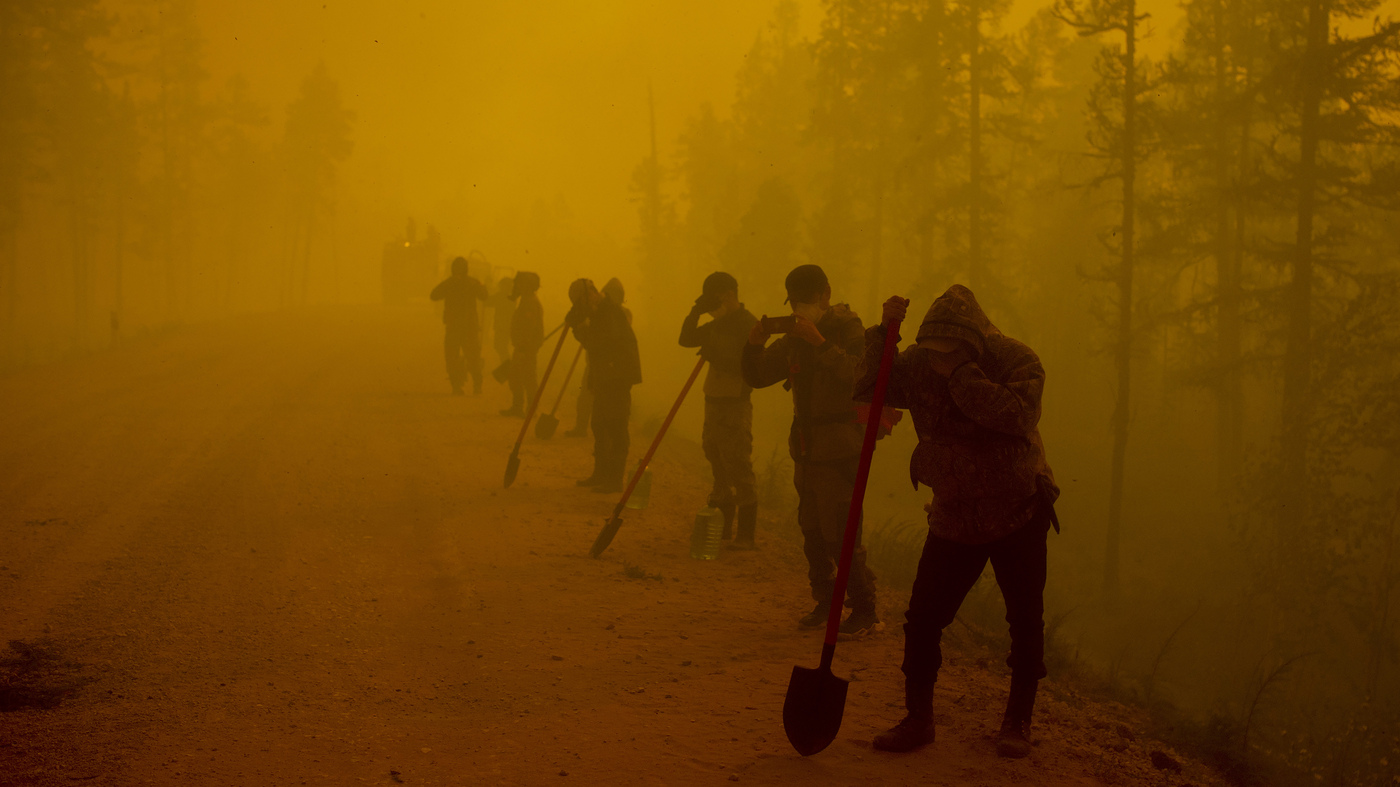
That's because heat waves, droughts, floods, wildfires, disease outbreaks and other dire effects of climate change are accelerating more rapidly than scientists expected in many parts of the world, including in North America. And as oceans, rainforests and polar regions heat up, nature is less and less able to help us with the task of adapting to a hotter Earth, the report finds.
Still, the authors of the report make clear, humans are not powerless. Repairing damaged ecosystems and reducing greenhouse gas emissions dramatically and immediately would spare billions of people from illness, poverty, displacement and death.
For example, climate change is dangerous for pregnant women, the report notes for the first time. Wildfire smoke exacerbates respiratory and cardiovascular disease. And the trauma of living through a weather disaster can cause long-term mental health problems.
Climate change does hurt everyone. Those who are poor and marginalized are at the highest risk of getting clobbered.
Preventing that kind of runaway warming requires dramatic cuts to greenhouse emissions in the next decade, which would require that humans stop burning fossil fuels in cars, trucks and power plants. The U.S. has been slow to reduce emissions in part because misinformation about climate change and the politicization of climate science has caused widespread public confusion about the true risks of global warming, the report says.
In reaction to the report, U.N. Secretary-General, António Guterres doubled down on that message, calling fossil fuels "a dead end."
"Coal and other fossil fuels are choking humanity," Guterres says. Fossil fuel companies, banks and investors are all complicit, he argues. "Those in the private sector still financing coal must be held to account. Oil and gas giants - and their underwriters – are also on notice."
"There's still time to reverse the damage", but just less time. It's faster than we can adapt, so we need to act now.

For a newly elected Democrat, taking even a minor swipe at Pelosi was risky; joining a protest in her office seemed like political suicide. “It was absolutely terrifying,” Ocasio-Cortez told me. “But I felt like if these sixteen-year-olds are willing to sleep in a church and get an arrest on their record and possibly mess up their college prospects, if that’s what they’re willing to risk, then I can risk a committee placement or whatever.”
Ali Zaidi, who worked in the Obama White House and is now Biden’s national deputy climate adviser, a job that did not previously exist, told me, “The outer reach of what was possible, in terms of climate policy, is now table stakes.” He added that, throughout American history, “whenever we have achieved a phase change it’s been young people making it happen.”
年輕人嘅力量不容忽視,通過努力,可以將原本看似冇可能、好少人提嘅名詞變成多次喺總統口中講出嚟嘅目標
Prakash grew up in the Boston suburbs; her family is from South India, which, in recent decades, has been battered by floods, droughts, and heat waves. For as long as she can remember, she has experienced climate change as a source of profound anxiety. “As a kid, you first have the thought, This is the most dire problem, so surely there are adults in the room who are fixing it,” she said. “That quickly turns to, Oh no, the adults are actually the ones making it worse, and no one has a plan.” As a high schooler, she was desperate to take action, but the only group she could join was her school’s recycling club. “Then I got to college and figured out, Oh, you don’t sit around waiting for the people in power to fix things,” she continued. “You have to force their hand.”
“I would much rather be a young person just living my life and going to festivals and stuff. When the world is burning, that just doesn’t feel like a serious option.”
呢個都係年輕人嘅優勢,佢哋冇任何嘢可以損失,而且對成人感到十分失望,所以不斷升級去迫使成人行動起嚟
Once each day, she sat outside and meditated using the Calm app on her phone. Even when negotiations in Washington demanded her attention, she tried not to cancel therapy appointments or break phone dates with friends. “My job is to wake up every day and stare into the abyss of human suffering,” she said. “If I didn’t stick to certain habits that keep me grounded, I would one hundred per cent lose my fucking mind.”
確實,要堅持一樣大嘢真係好難,尤其當你要領導要組織要負責嘅時候,嗰種壓力會非常大。所以如果一樣小習慣嘅話,係可以幫到好多
The generous interpretation is that activists want to move forward judiciously. The less generous one is that they sometimes fall into a classic trap: supporting development in theory but opposing it when it’s sited in their back yard.
He came to think of this as a universal law of social movements: When you set out to achieve the impossible and merely achieve the improbable, you feel like a failure.
He wrote what he called a Movement Action Plan, laying out “the eight stages of successful social movements.” The anti-nuclear activists, he argued, had rushed from Stage One, “Normal Times,” to Stage Four, “Social Movement Take-Off.” This was the good news. The bad news was that they were now entering Stage Five, “Identity Crisis of Powerlessness.” “After a year or two, the high hopes of movement take-off seem inevitably to turn into despair,” Moyer wrote. “Most activists lose their faith that success is just around the corner and come to believe that it is never going to happen.”
都有高漲同低落嘅時候,目前嘅階段就係最難捱嘅:羣眾變得對示威行動冷漠,議案之路又好難通過,面對更多嘅身份質疑。但絕對唔等於已經失敗,挨落去,揾到更加明確嘅目標、方向同策略之後,就可以進入下一個更加有希望嘅階段
Today’s climate activists face even longer odds, and they have less time. According to Moyer’s model, they may not win major concessions for several years. The question, at that point, will be whether it’s too late.
而且真係要再快啲,冇幾多時間了
- 韓國大選

唔同世代唔同性別嘅比例差別都幾大,當然,就算係噉嘅選舉結果,都未必性別平等運動嘅失敗,相反應該講成果都比較顯著,否則唔會有這樣嘅恐懼
同埋,搖擺區固然重要,但鐵票倉都係要重視。而家噉樣都算係一種平衡,就睇兩邊點交鋒and合作
- Dr. Paul Farmer
Paul’s basic belief was that all human beings deserve equal respect and care, especially when they are sick. His dream, he once told me, was to start a movement that would refuse to accept, and would strive to repair, the grotesque health inequities among and within the countries of the world. When I first met him — in Haiti, in 1994 — he had already created a growing health care system in a desperately impoverished area. I thought he’d done a lot already. Now, looking back, I realize that he was just getting started.
He didn’t always treat everyone as well as he might have, but to be a patient of his was a great privilege. He was a gifted doctor and a deeply compassionate doctor, the kind of doctor we all would like to have. And I believe that the love of doctoring was the ultimate source of his strength and perseverance in the face of endless obstacles and disappointments. He wanted to make the whole world his patient, and he made a good start on that.
Speaking only for myself, I find it hard to imagine a world without him in it, especially in this moment when cynicism and cupidity seem to have become cardinal virtues, and compassion and decency are deemed a sucker’s pursuit. But Paul’s plans and dreams live on in the minds of thousands of people, who are equipped and eager to follow his example. I like to think he died happy.
悼念一個平凡而又偉大嘅國際醫生Paul Farmer, "when cynicism and cupidity seem to have become cardinal virtues, and compassion and decency are deemed a sucker’s pursuit",仲有好多人好好,而令人相信世界仍然有希望
- world changing

And yet, I still counsel caution and restraint, a position I know many Americans find impossible to understand. Every measure of our outrage is natural, as are the calls for action. But emotions should never dictate policy. As President Joe Biden emphasized in his State of the Union address, we must do all we can to aid the Ukrainian resistance and to fortify NATO, but we cannot become involved in military operations in Ukraine.
I realize that this is easy for me to say. I am not in Kyiv, trying to spirit my child to safety. I am not watching the Russians approach my town. When I finish writing this, I will reassure my wife and sit down to share dinner with her in a quiet home on a peaceful street.
For now, fidelity to history requires us to remember that this isn’t the first time we’ve had little choice but to stand by and watch a dictator murder innocents.
Indeed, one more reason not to let our emotions get the better of us is that the only way Putin can save himself from his own fiasco is to bait the West into an attack. Nothing would help him more, at home or abroad, than if the United States or any other NATO country were to enter direct hostilities with Russian forces. Putin would then use the conflict to rally his people and threaten conventional and nuclear attacks against NATO. He would become a hero at home, and Ukraine would be forgotten.
真係別無選擇,對付流氓唔可以用流氓嘅方式,否則對方只會更加不顧後果地報復,發癲嘅人,會攬埋人哋一齊死
Heinz paused. In a fatherly manner, he said: “Tom, I know that right now you’d like to rip Saddam Hussein apart with your bare hands. But this is when I need you to be calm and rational and helpful so that we can figure this thing out.”
It was a reproach, but a gentle one. I never forgot it, and now I always try to keep in mind that in moments of crisis, we must reflect deeply and dispassionately before daring to act.
所以,都係要保持理智,做最正確嘅決定,而且一定要更有針對性同徹底進行,否則只會似之前嘅制裁一樣傷唔太到獨裁者同寡頭嘅利益

Here’s Why Mearsheimer’s Realist Take is So Exasperating by Tom Pepinsky
1959年,著名哲学家罗素(Bertrand Russell)在接受采访时,曾留下了一些振聋发聩的话:
「不管你是在研究什么事物,还是在思考任何观点,只问你自己,事实是什么,以及这些事实所证实的真理是什么。永远不要让自己被自己所更愿意相信的,或者诸如相信了则会对社会更加有益之类的想法与观念所影响。」
「在这个日益紧密相连的世界,我们必须学会容忍彼此。我们必须学会接受这样一个事实:总会有人说出我们不想听的话。只有这样我们才有可能共同生存。而假如我们想要共存,而非共亡,我们就必须学会这种宽容和忍让。」
毫无疑问,在如今这个众声喧哗的复杂时代,这至关重要。
唔同嘅思想流派,都係從唔同嘅角度嚟分析。作為讀者嘅話都係會儘量多地瞭解唔同嘅角度嚟更加全面地認識,但是否容忍?我而家就唔係幾確定,理想情況下,係要聽下人哋點講,不過我而家難以控制自己嘅情緒,問題唔係人哋嘅想法有幾唔同,而係,事實層面上就有問題……就真係好難討論(實際好易變成拗)落去。比如話乜嘢生化實驗……好喇,而家俄羅斯話美國喺中國都有搞,噉係咪繼續聽信,實在唔知講乜嘢好,資訊被壟斷嘅當下,只會覺得好可憐
第二條link係其中一個個人比較中意嘅角度
Lots of people object to realist analyses because they lack a clear moral position on violence and individual liberty. I share these views. But I also despise this realist way of thinking because it is so indeterminate, and because it leads to statements about what states’ security interests which are, I think, either vacuous or hopelessly subjective.** And that is why Mearsheimer’s take is so exasperating.
- America's interests

In giving the order to invade Ukraine, Putin made nonsense of a raft of apologists who had, until the last hour, continued to believe that Russia could be satisfied with concessions, that it was acting out of “legitimate security concerns.” Putin didn’t start this war because of NATO expansion, or American imperialism, or Western weakness, or the defense of Christian civilization, or any other cause that directs blame away from the perpetrator. In 2014, Ukrainians staged what they called a “Revolution of Dignity” in Kyiv, and they’ve been struggling ever since to create a decent country, ruled by laws and not by thieves, free of Russia’s grip. That country was so intolerable to Putin that he decided to destroy it.
就尊嚴問題,烏克蘭唔想歸附於俄羅斯,想獨立自主,想喺外交上同俄羅斯平等。而家發動戰爭嘅,完全係俄羅斯發癲,為乜人哋一定要依附你?根本講唔過去。而且如果唔係俄羅斯食咗人哋塊地,又成日支持烏克蘭當地嘅分離主義地區,烏克蘭都唔至於咁反俄。
Now Putin, along with his patron and enabler, Xi Jinping of China, has pushed into American and European faces a truth we didn’t want to see: that our core interests lie in the defense of those values. To be realist in our age is not to define American interests so narrowly that Ukraine becomes disposable but to understand that the world has broken up into democratic and autocratic spheres; that this division shapes everything from supply chains and competition for resources to state corruption and the influence of technology on human minds and societies; that the autocrats have gained the upper hand and know it.
"our core interests lie in the defense of those values"
Since last Thursday, Ukrainian resistance to invasion has shamed and inspired much of the world. Protests that were absent during the Russian buildup throughout February now fill the streets in cities from Sydney and Tokyo to Berlin and Bern—even in St. Petersburg and Minsk. Over the weekend the European Union imposed devastating banking sanctions on Russia. Most remarkably, Germany ended its decades of nonintervention and declared that it will send military equipment to Ukraine. Even perpetually neutral Sweden is arming the Ukrainians. This sudden, energetic unity of the democracies shows the reserves of power that can be brought to bear against the autocracies without going to war.
所以我反復話,呢個係人民嘅力量。如果國家只關注自己狹窄嘅利益,佢哋就唔會大力支持烏克蘭、強硬制裁俄羅斯,但人民唔應承!邊個會眼白白睇住一個國家從上到下竭盡全力抵抗另一個國家嘅侵略而唔動容呢?
Biden is right to rule out sending troops—after two decades of fruitless death and destruction, some lessons of restraint are well worth learning, above all in a conflict with another nuclear power. But he should make clear to the Ukrainian people, who are fighting alone, that they can count on every other form of American support—weapons, training, humanitarian aid, intelligence, and sanctions that smother the Russian economy and sever Russia’s elites from all the benefits of the rich West. Biden should tell his own people that they will have to make sacrifices, and why they are worth making.
Putin may still win his bet on Western decadence and indifference. America is more insulated than Europe from the effects of punishing Russia, but nothing can protect us from ourselves. If this country fails to persevere in supporting Ukraine, the cynical opportunism of our political elites and the self-absorbed divisions of our people will be the reasons. Putin’s assault on Ukrainian democracy will test American democracy as well.
總相信,邪不勝正,獨裁打唔贏民主,就算政權被推翻,屬於人民嘅反抗遠遠未完。Stand With Ukraine!

講完美國同歐洲,再嚟睇睇中國。呢篇文章喺微信一直被刪,其實都唔出奇
有理有據,不過究竟係咪噉做就睇上邊點諗了
- 俄烏衝突

More incredibly, this 180-degree turn has the support of an astonishing 78 percent of the German public, who now say they approve of much higher military spending and will gladly pay for it. This is a fundamental change in Germany’s definition of itself, in its understanding of its past: Finally, Germans have understood that the lesson of their history is not that Germany must remain forever pacifist. The lesson is that Germany must defend democracy and fight the modern version of fascism in Europe when it emerges.
Even if this ends badly, even if there is more bloodshed, every Ukrainian who lived through this moment will always remember what it felt like to resist—and that too will matter, for decades to come.
可以講,Putin嘅呢次入侵的確團結咗歐洲, " 'Deep concern' has been exchanged for real action." 實際嘅行動帶嚟嘅就係真正嘅支援同抵抗,越少幻想,更瞭解真實,可以更加有針對性地去做嘢
Right now many Russians don’t even realize what is happening in Ukraine. State television has not yet admitted that the Russian military has attacked Kyiv with rockets, bombed a Holocaust memorial, or destroyed parts of central Kharkiv and Mariupol. Instead, the official propagandists are telling Russians that they are carrying out a police action in Ukraine’s far-eastern provinces. The audience gets no information about casualties, or war damage, or costs. The extent of the sanctions has not been reported. Pictures seen around the world—the bombing of the Kyiv television tower today, for example—can’t be seen on the Russian evening news.
What could happen in Russia if the story became better known, the details clearer? What if Russians are eventually able to see the same graphic images that we see? What if the price of this pointless violence becomes tangible to them too? The unpopularity of this war is going to grow, and as it gets bigger, the other Russia—the different Russia that has always been there—will grow larger, too. The Russians who flooded the streets in 1991 to cheer the fall of the Soviet Union, the Russians who protested fake elections in 2011, the Russians who turned out in large numbers all across the country to protest the arrest of Navalny in 2021, the Russians, rich and poor, urban and rural, who don’t want their country to be an evil empire—maybe their numbers will expand enough to matter. Maybe, someday, they will change the nature of their state too.
一直以嚟俄羅斯嘅管制都係有鬆動嘅,因為有所謂嘅歐洲中心論,所以都係會稍微開放同有返啲民主嘅元素喺入邊,比如話獨立媒體同反對派。特殊時候就會關停獨立媒體,控制傳媒,局域網,拉示威者等等。不過唔等於冇突破嘅口,因為本身就唔密實,而且都係要講啲面子,比如有阿婆上街反戰,警察都係會好聲好氣帶佢走;都係可以有少少期望嘅,雖然機會唔大,且就算Putin下台之後大概率都係會「選」返個差唔多嘅人上嚟
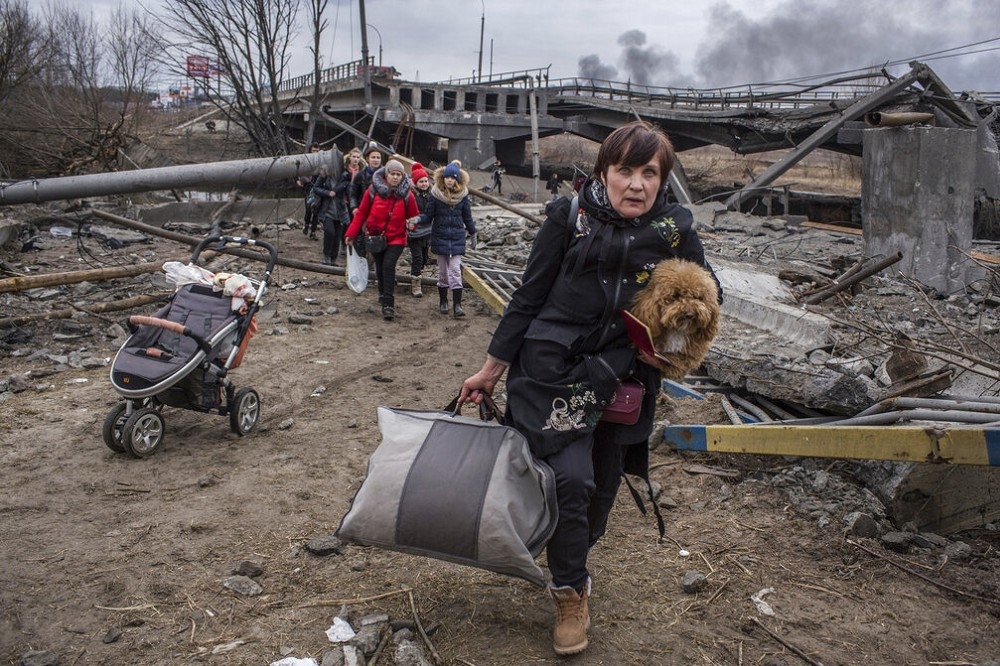
看見歷史傷口,不是在計較一己私人之恩怨情仇,是是非非;而是要如德國痛悼納粹大屠殺一般,系統性反省,不讓悲劇再次發生。否則,「九州生氣恃風雷,萬馬齊喑究可哀」的人權迫害還是會一再發生:冤案錯案一堆,人肉橫飛,血流成河。
總之,往事並不如煙。台灣歷史課本敘事,可不可也是開放的? 讓受統治者、受壓迫者或歷史傷口深淵的聲音,也有機會鳴放? 歷史紀念館也可彰顯人人生而平等的價值,而不只是獨裁者或菁英的故事,才值得被記得?
只要認真諗諗就會知道戰爭對人民嘅傷害有幾大,但如果自細嘅教育就唔強調這一點,就會好容易忽視呢啲傷害,甚至可能會覺得無關緊要,因為都唔會寫入歷史書上為後人普及,需要強調返
- Brain slows down after our 60s

換個話題輕鬆下,surprised! 人腦嘅處理速度其實到60歲之前都唔會點下降
The team used an established model of cognition based on previous research, which assumes people make decisions by continuously considering information until they reach a threshold of certainty.
According to this model, the decrease in reaction time from age 20 is probably due to people wanting more certainty before making decisions as they age, visual information taking more time to travel from their eyes to their brain and people taking longer to physically hit the button as they get older.
The analysis suggests that people’s mental speed increases in their 20s, and stays high until age 60. “Until older adulthood, the speed of information processing in the task we studied barely changes,” says von Krause.
“People become more cautious in their decisions with increasing age – they try to avoid mistakes. At the same time, the motor processes – the pressing of the response keys in an experiment – slow down with increasing age.”
不過人嘅運動反應確實係會變慢(我哋嘅身體跟唔上個腦),and人越大就越容易變得更謹慎,需要更多嘅信息去獲取確定性
While the team expects the results will apply to a wide range of cognitive tasks, it is possible that age may affect other tasks differently, such as those relying on memory.
The study supports smaller studies that have also found a decline in mental speed from around age 60.
同埋今次嘅實驗只係講腦部運算速度,但唔代表記憶力、學習能力等等,sad
- 女性
(《江照黎明》,可惜可惜,好少睇劇嘅我……大概都係唔會睇呢套劇)
對馬思純嚟講,喺噉嘅環境之下又真係冇辦法。從細個開始就因為肥而被人歧視同霸凌,直到減肥之後先擺脱到自卑。而後邊入演藝圈,就變本加厲地需要非人類嘅瘦先符合上鏡標準(上鏡會顯肥),跟住喺反復嘅虐待身體同網路攻擊中患上咗抑鬱症。幸運嘅係,佢最後同自己和解咗:「放下对身体的仇恨,才能活得舒展和自由。」
容貌、身材焦虑,为每个现代女性都戴上了沉重的镣铐。
一部分女性为了瘦削的身材,不惜采用任何方式。
困在身材评分标准里的女性,无法享受食物,也无法接纳身体。
“诸多合力,让女性心甘情愿地相信,自己的身体是‘不合格的’,必须要通过一些方法让身体改变,才能够有资格成为‘有价值的人’。”
我们的审美是被塑造的,倘若执著于白幼瘦的标准,女性便会陷入无休止的自卑和自我矮化。
真正的美,是你的自信和力量感,是你蓬勃的欲望、强大的内心与昂扬的气场。
点个「在看」,愿你也能如辣目洋子一般,自信说出:
“好爱自己的身材和脸,以前只是和平相处,现在是爱。”
- 罷免
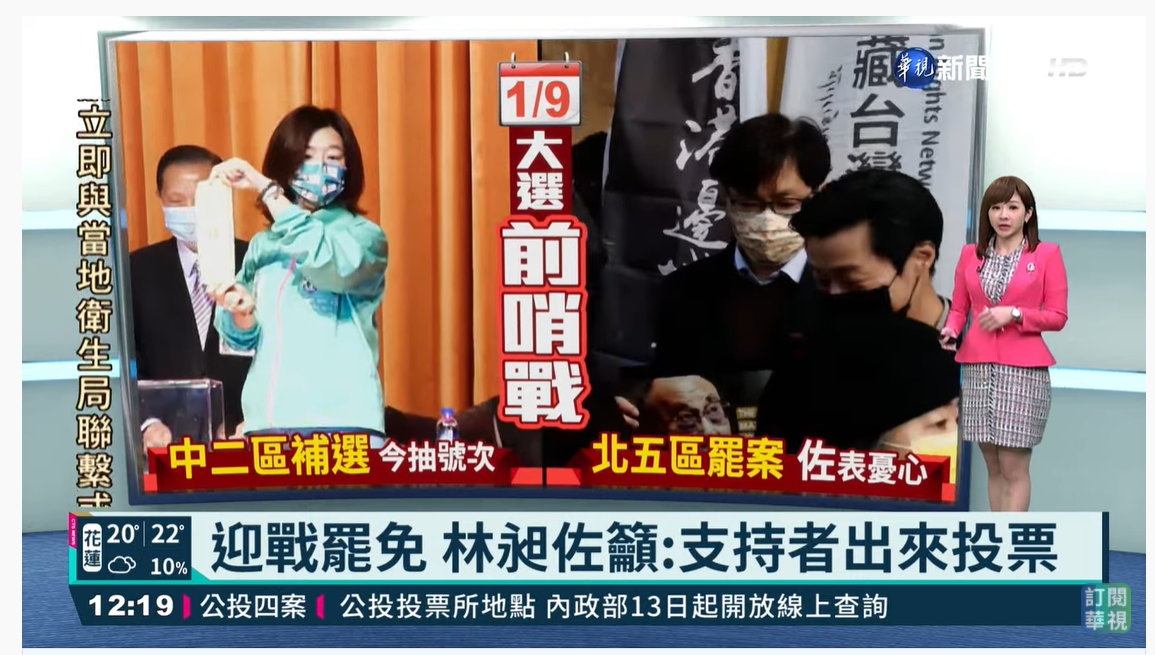
除了唯恐天下不亂的國民黨外,有一股重新提高門檻的看法。昨是今非,這或許是最簡單的辦法,然而增加罷免成本未必符合目前的民主潮流。持平而論,若比較各國的罷免門檻,25% 的門檻並不算太低,然而各國的罷免程序差異頗大,政治環境也不同,簡單比較門檻並沒有太大的意義。個人認為,我國《選罷法》最大的問題不在門檻,而在於罷免的對象與選制不分,是一種完全扁平的罷免法。
首長有積極的行政權,濫權或不作為對人民有直接與立即的傷害。
民意代表的權力不似首長的行政權,是消極的監督權,政策的審議也以議會的多數決呈現。以至於個別民意代表對整體選民的傷害較為間接,也無急迫性。退一萬步,若民代真的不適任,考慮罷免的社會成本,何不由頻繁的定期改選淘汰?
另一方面,我國民意代表的選制也不統一,地方議會選舉採多席次制,而國會選舉則又採單一席次制。兩者卻適用一樣的罷免程序與標準,其不合理性顯而易見。
若觀察民主政治的發展史,由公民直接罷免的制度並不是因應選舉而產生的對等權力。從羅馬帝國到中世紀的王國,並無普遍的選舉,但都有罷行政官的機制,讓人民在必要的時候,有機會藉罷免對抗帝國或國王指定的官員,但近代民主政治的發展反而朝向限縮人民直接罷免的權力。
簡而言之,英美這兩個分別為內閣制與總統制典範的國家,為了有效隔離直接民意,防範民粹主義綁架國家,走向暴民,以司法獨立與代議政治來節制行政與立法獨裁。事實證明,後起的民主國家若以直接民主之名,輕忽代議政治與審議式民主(deliberative democracy)的重要,往往要付出慘痛的代價,例如法國大革命之後的暴民政治,又如德國百年來在民主與極權之間徘徊,更不用說20世紀的共產革命,獨裁者與暴民結合,天下焉能不亂?
然而對直接民主的疑慮並沒有說服所有的人,例如起草美國獨立宣言的傑佛遜與權利法案之父梅森,主張以更直接的民主來監督政府與制定政策。反聯邦黨人普遍認為聯邦憲法取消原本在《邦聯條例》中的罷免機制(但從來沒有動用)是一大敗筆,甚至成了部分制憲代表反對簽署的原因。
都係要繼續去改革,目前嘅門檻唔高,且中央同地方嘅民代罷免程序上都應該有所區別,且要往加強限制嘅角度落手,基於選舉嘅週期唔長,確實應該減少浪費公帑同精力嘅機會
- 個人敍事
这是一个非常复杂的故事,在您阅读完整篇文章之前,请不要轻易下判断。
她和她的家人们,被时代的大叙事不断影响和改变着,直到现在,战争爆发了,他们的个人苦难成为全世界的话题。但世界关心的似乎也不是这些个体,而是战争的理由,武器的数量,领土的划分,也有人还在摇旗呐喊。
大学时, 我通过参加了一个国际项目,去了一趟中国的长沙。我住在一个寄宿家庭里。我跟他们从卡尔梅克开始讲我的身世,听到土尔扈特的时候,他们说,那不就是我们这里吗?这是第一次有人跟我说“你是我们这儿的”,竟然是中国的家庭。
从2014年到现在,顿巴斯在这八年里一直有战乱存在。我妈妈和我舅舅什么期待都没有了,他们对两边都没有任何期待,因为战乱,他们早就累了。我舅舅中风了,在顿巴斯无法离开。
顿巴斯人想要的是和平,而不是把整个乌克兰都变成顿巴斯。
我妈妈和我舅舅什么期待都没有了,因为战乱,他们早就累了。他们以前或许是希望进入俄罗斯的,但早就失去了希望。她谁也不支持,她只是希望战争停止。
战争刚开始的时候,我妈还蛮开心的,因为她以为这个战争只会有一天,然后就能结束顿巴斯的困境。结果她发现,哦,好像不是这个样子。结果,像我们这样被战争伤害的家庭变得更多。因为姥姥去世,我母亲脸上一直有战争的影子。战争持续越长,这样的母亲就会越多。
我肯定是反战争的,战争很可怕。但世界好像很伪善。在基辅杀人,全世界关注。在顿巴斯杀人,大家沉默。我也不知道参与怎样的反战组织,要不要参与。我发现如今大部分的反战组织都是用乌克兰国旗装点的。因为我姥姥的去世,我没办法在我的头像上添一面乌克兰国旗。有的人会报仇,但我好像拒绝报仇,这是不是说我就可以随便欺负?我的痛苦很大程度上来自于这里。
我一直很好奇,别人怎么能选择一个立场,站在这个强烈的立场上,看事情就黑白分明了。战争之后,我们会失去很多合理的东西,所以很难合理思考。这些情感很像波浪,会吃掉你。
其實讀完之後,都好難下判斷。宏大敍事喺呢片土壤完全唔缺,而好少有個人嘅角度。無論幾時,戰爭都唔會係好事,底下嘅老百姓最受罪,多啲温暖同理解,世界先唔至於太心寒
- 學習愛

有時候我們似乎忘記自己也有過疲憊無力,想要逃離的時刻,而他們深切地忘了孩子也有這樣的時刻,特別是面對生命重要階段的時候。
期待過度以至於不切實際,容易忽略
他說:「許多道理我都懂,但是⋯⋯」搶在他陷入迴圈中前對他說:「那就開始實行你懂的道理,你是幸運的,你的孩子還相信你,願意對你發出呼救。」
好多事情都一樣,知道咗道理係一回事,行動起身就係另一回事,只有勇敢踏出一步,先會走出循環
幾年前讀袁瓊瓊老師談某個孩子自殺的文章〈兒子沒有說話〉,當中有段話至今仍深刻記著:「我有時候認為,一個人對另一個人能夠做的最好的事,就是相信他的能力,然後站在一旁,看他成長,並且欣賞。身為父母應該像園丁,給樹木澆水,除蟲之後,就看他生長。我們不會規定玫瑰要變成茶花。但是許多父母常常想把香蕉種成蘋果。」
愛是一種深信,一種在旁的注視與觀望,一種放手與擁抱,以及聽見所愛之人對你發出的呼救聲。
- 索尔仁尼琴和他的阴影
真正的英雄,正在于与绝境相抗争,所谓“困兽犹斗”,而不在凯旋的辉煌时刻。出国,对索尔仁尼琴来说是一个转折点;但也不妨说,至此他已然达至人生的顶点。
一旦远离俄罗斯,索尔仁尼琴便失去了大地,犹如巨人安泰一样无能为力。他失去了对手,失却固有的压力,这就使得一个勇士的精神处于失重的、混沌的、悬 空的状态。一个人,当他丧失自由时,自由感可以变得更强烈;而在获得自由之后,对自由的焦渴自然缓解,原先敏锐的感觉也便随之钝化了。可以设想,有的人是 为苦难而生的——虽然这个说法有点残酷;事实上,具有苦难气质的人适宜在忧患中生活,来到平安的环境,反而会因精神的过分松弛而瘫痪。
俄罗斯知识分子由来反对国家组织,别尔嘉耶夫总结说,他们“像害怕污秽一样害怕政权”;但是,在民族问题上,却普遍存在大俄罗斯主义倾向。十九世纪俄 国政府在东亚细亚,高加索等地区的扩张战争,他们是不关心的;对于波兰尝试脱俄独立的行动,他们基本上持敌视态度,连普希金、托尔斯泰、陀思妥耶夫斯基也 无不如此。苏联在意识形态及社会实践方面,延续了沙皇俄国的大国沙文主义、反犹和排外的历史。知识分子及普通民众即使诅咒极权主义,也仍然希望有一个强有 力的外在权威,维护他们的伟大的祖国。
这种双重信仰,显然保护了专制主义的文化传统,使现存制度中的反民主倾向也因有了合法性的精神外衣,而得以顺利地扩展。在复活俄罗斯主义的统一行动 中,东正教起着极其重要的作用。在历史上,东正教一直宣扬服从国家,以此加强专制统治及自身的世俗权力;它构成了爱国、团结、稳定、和谐,作为俄罗斯特性 的重要部分。索尔仁尼琴是不承认苏联历史与传统的政治文化资源有任何联系的人,所以说,他是国家正统意识形态的当然继承者,正如他声称自己是一个“正教徒 ”一样。
知识分子从本质上来说,就是自由知识分子,或可称为反抗知识分子。如果去除了反抗,去除了独立自主的意识,去除了自由选择,而仅使个人性从属于权力关 系,自我约束以适应于现存秩序的逻辑,那么,自由将从知识分子身上自行剥离开来,从而从根本上改变其性质。对于索尔仁尼琴,萨哈罗夫有一个评价说︰“在我 看来,尽管索尔仁尼琴的世界观存在某些错误,但是在当代充满悲剧的世界上,他仍不失为一个为捍卫人类尊严而斗争的巨人。”这个评价是包容的,有所侧重的, 到底可接受的。在反抗暴政方面,索尔仁尼琴确实表现出了过人的勇气,而且直到最后,仍然坚持调查当年专制的罪恶,像德国清算纳粹一样追究迫害者的罪责;但 是,无庸讳言,他的错误也是致命的。应当看到,无论对于文学世界还是整个社会,索尔仁尼琴的贡献都是伟大的。他的人道主义,他的权力主义,他的光辉,他的 阴影,给予我们的都一样多,一样弥足珍贵。
最近確實感到幾奇怪,呢篇文章一定程度解答咗我嘅困惑——點解90年代俄羅斯大刀闊斧都冇融入歐洲,冇走向真正嘅民主。可能從一開始就係思想上嘅固執,mind is of great importance
- 法律要明確
人唔係老鼠,但人一樣都會癲;朝令夕改,人就會唔敢郁
- Grown-Up

Adults keep telling you the pandemic will never end, your education is being destroyed by ideologues, digital technology is poisoning your soul, democracy is collapsing, and the planet is dying—but they’re counting on you to fix everything when you grow up.
呢個都係一個比較畸形嘅現象,好難去解釋,可能佢哋認為而家嘅情況比佢哋以前要好,呢個同自己有關,而而家嘅問題就留畀而家嘅人去改變?但結果好可能係個問題一代又一代噉「傳承」落去,因為成年人嘅世界總會有細路
In an authoritarian or rigidly meritocratic system, schools select the elites who grow up to make the decisions. A functioning democracy needs citizens who know how to make decisions together.
Americans with college degrees are likelier to vote and otherwise participate in civic life than those without; they’re also likelier to spend hours throwing clever online darts. One study found that college-educated Democrats were more likely to hold false views about their political enemies than those without four-year degrees. More education generally makes people more Democratic, but not more democratic.
"More education generally make people more Democratic, but not more democratic." 以前冇點認真諗,但噉講就真係好有道理,education is "a form of indoctrination",所以佢哋會更支持民主黨,但同時,佢哋都唔等於變得民主
shows how badly Americans are able to think about our collective problems—let alone read, listen, empathize, debate, reconsider, and persuade in the search for solutions. If these habits have something to do with education—and every kindergarten teacher knows that children can be taught to compromise—then democratic citizenship can, at least in part, be learned. We owe our beleaguered children, the victims of our inadequacy, a chance to be better than we are.
Finally, let’s give children a chance to read books—good books. It’s a strange feature of all the recent pedagogical innovations that they’ve resulted in the gradual disappearance of literature from many classrooms.
The best way to interest young people in literature is to have them read good literature, and not just books that focus with grim piety on the contemporary social and psychological problems of teenagers. We sell them insultingly short in thinking that they won’t read unless the subject is themselves. Mirrors are ultimately isolating; young readers also need windows, even if the view is unfamiliar, even if it’s disturbing. The ability to enter a world that’s far away in time or place; to grapple with characters whose stories might initially seem to have nothing to do with your life; to gradually sense that their emotions, troubles, revelations are also yours—this connection through language to universal human experience and thought is the reward of great literature, a source of empathy and wisdom.
The culture wars, with their atmosphere of resentment, fear, and petty faultfinding, are hostile to the writing and reading of literature. The novelist Chimamanda Ngozi Adichie recently predicted that the novels of the next 10 to 15 years “will be awful … Art has to be able to go to a place that’s messy, a place that’s uncomfortable,” she said. “Literature is the last thing that we can depend on to tell us the truth about who we are.” The connection between reading and democratic citizenship might not be direct, but it’s real.
睇上去好似全球都出現閲讀量越嚟越少嘅現象,我自己,都讀少咗唔少……(no excuse,都係希望讀返多啲,可能恢復唔返之前嘅數量,但起碼,一月至少兩本?大部頭就一月一本),所以都唔難理解點解而家嘅細路越讀越少書,但讀少咗書,人真係會冇咁醒目(呢度唔係聰明嘅意思,而係話邏輯、思想方面)
- 愚蠢
道理簡單但應景嘅一個視頻
- 現代精神病人
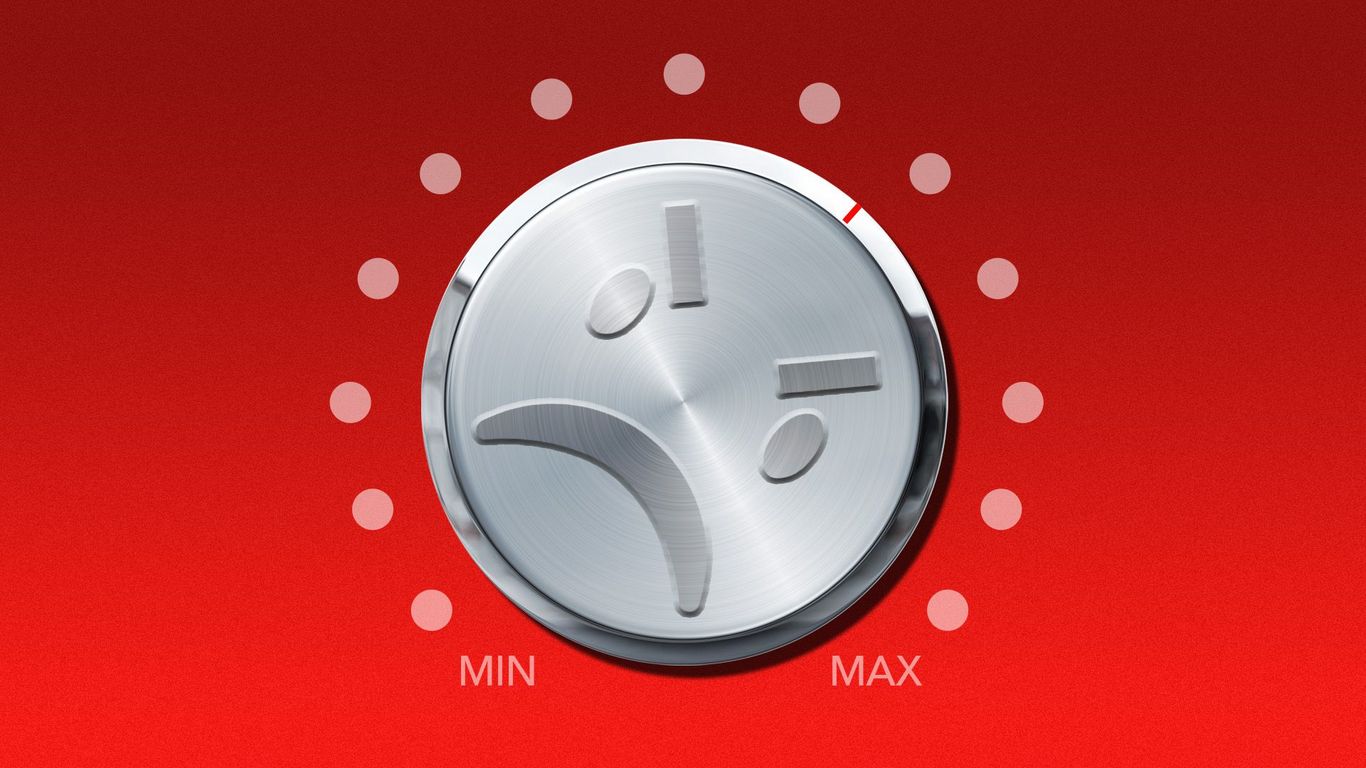
沉默嘅大多數,所以都係可以有所希望嘅
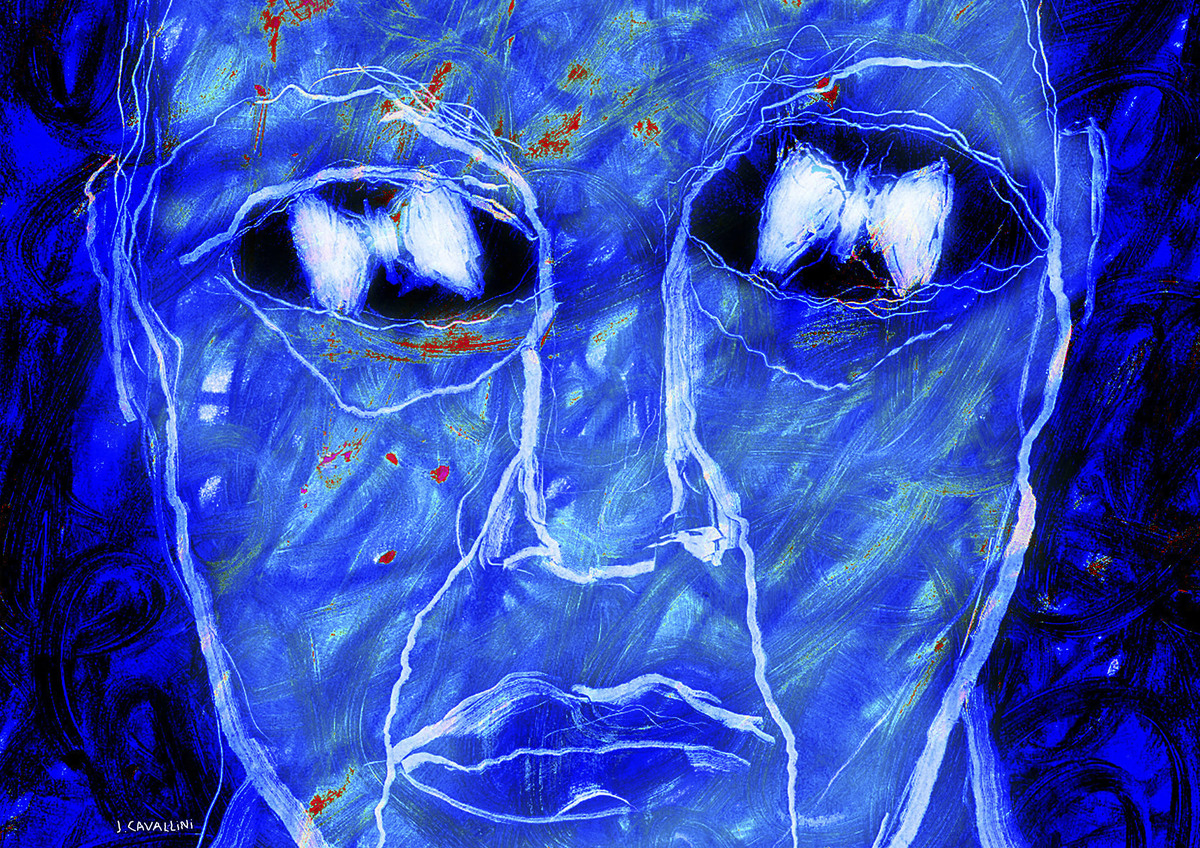
比較有啓發性嘅一篇文章
著名的醫療史學家波特(Roy Porter)曾說過,我們的文明愈來愈多人被診斷成精神疾病,這到底是一個科學的進步?還是這個文明需要反省?」蔡友月同時舉了社會學者高夫曼(Erving Goffman)的名作《精神病院》為例,「他說精神疾病不是病,是你被貼了一個精神疾病的標籤,你周圍的人就會用精神病的狀況來看你,你就慢慢變成一個自我實現的預言、變成一個精神病人。」
晚近的人文社科領域已經不在精神醫學和反精神醫學這兩個極端對抗,而是試圖在方法論、認識論上去做一些修正。為什麼?「台灣有一個滿有名的憂鬱症婦女研究,發現這些送到急診的憂鬱症婦女,背後就是家庭暴力,」蔡友月認為,「如果只是開藥給她吃,你覺得她的憂鬱會好嗎?可是當反精神醫學不斷強調結構的暴力,是不是也無法真正看見、回應她的受苦?」
「如果你有情緒上的問題,會最先想要找誰?」諮商、宮廟、家人、精神科醫師、牧師、能信任的朋友、酒、給自己一點時間⋯⋯線上讀者給了各式各樣的、或許是他們最常選擇的方式。「那憂鬱到什麼程度、情緒障礙到什麼程度,你才會覺得需要找醫生了?」這是蔡友月的第二輪提問,同樣地,背後是她想帶給大家的第二個思考方向:
面對情緒的方式有很多,可是在晚近現代性的歷程中,我們為什麼變得不會自己處理,而是交給專業來幫助我們面對自己的情緒?
每個人都會經歷情緒起伏。會憂鬱、沮喪,會暴怒,當然也會有很high的時候。人的情緒是一個連續的光譜,跨過某個點會被視為「病」,不過是近100年來的事,至於尋求現代醫療的協助則又更晚。「我想問的是,為什麼我們會覺得精神科醫師可以承擔一個人的情緒,甚至是一個人生命的受苦?」這是蔡友月作為社會學家的提問。
《兩種心靈》最後提及,我們如何看待、面對精神疾病,其實關於我們如何設想「人」,如何設想自己是一個怎麼樣的人。一如李舒中所言,我們對於受苦的看法是一個透鏡,選擇了怎樣的透鏡,將會決定受苦的人的發展和命運,以及我們終究如何理解身而為人的意義。
- 2015年嘅媒體環境
2015 -> 2022,我哋嘅媒體環境變咗有幾多?反正我覺得好可憐,而家傳統媒體失聲,靠相對獨立經營嘅媒體同自媒體嚟報道
- 遇羅克
遇罗文说,难友中一位干部子弟很佩服遇罗克的才学和胆识,他问遇罗克:“你为一篇《出身论》去死,值得吗?”遇罗克很镇静地回答:“值得。你过去一直生活优越,终日在高干子弟中间,这所大学上腻了,看不上了,还可以上另一所。你对家庭出身问题没有体会。而我几次高考,成绩优异,都没有考上。像我这样的并不是一两个。可以说,从我们能奋斗的那天起,就是被社会歧视的。你不了解我们这些人的社会地位和心情。我被抓了,也许结果不堪设想,但为出身问题付出这么大代价的,解放以来还是第一次。如果说这是呐喊,也是受压迫的人喊出的最强音了。”
我并不是英雄
在没有英雄的年代里,
我只想做一个人。
——《宣告》给遇罗克烈士 北岛
高尚係高尚者嘅墓誌銘
四十幾年過咗去,世界會變好嗎?或者講,幾時先會有更多嘅人係做一個人
- Youth treatment programs
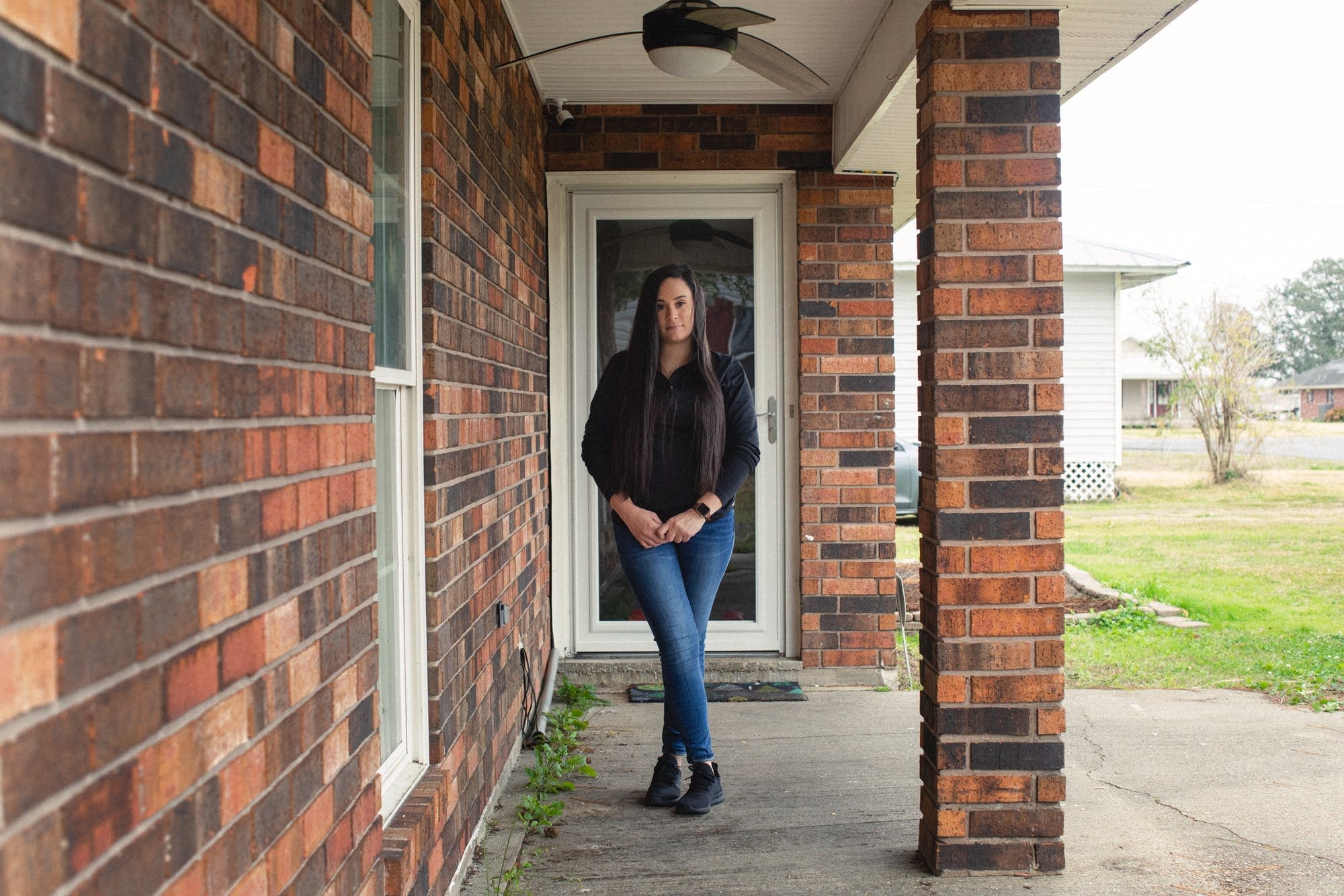
Youth treatment programs,外國嘅家長同樣會有噉嘅需求,而一開始嘅冇管制同樣帶嚟好多創傷,而亡羊補牢仲唔算太晏
“No more hoods, or blindfolds, or handcuffs,” Gelser Blouin said during a floor debate last June. “These are not kids who have committed any crimes. These are just kids who parents are struggling with. And some have a very significant need for care or support, but not for blindfolds and hoods and handcuffs.”














評論留言区